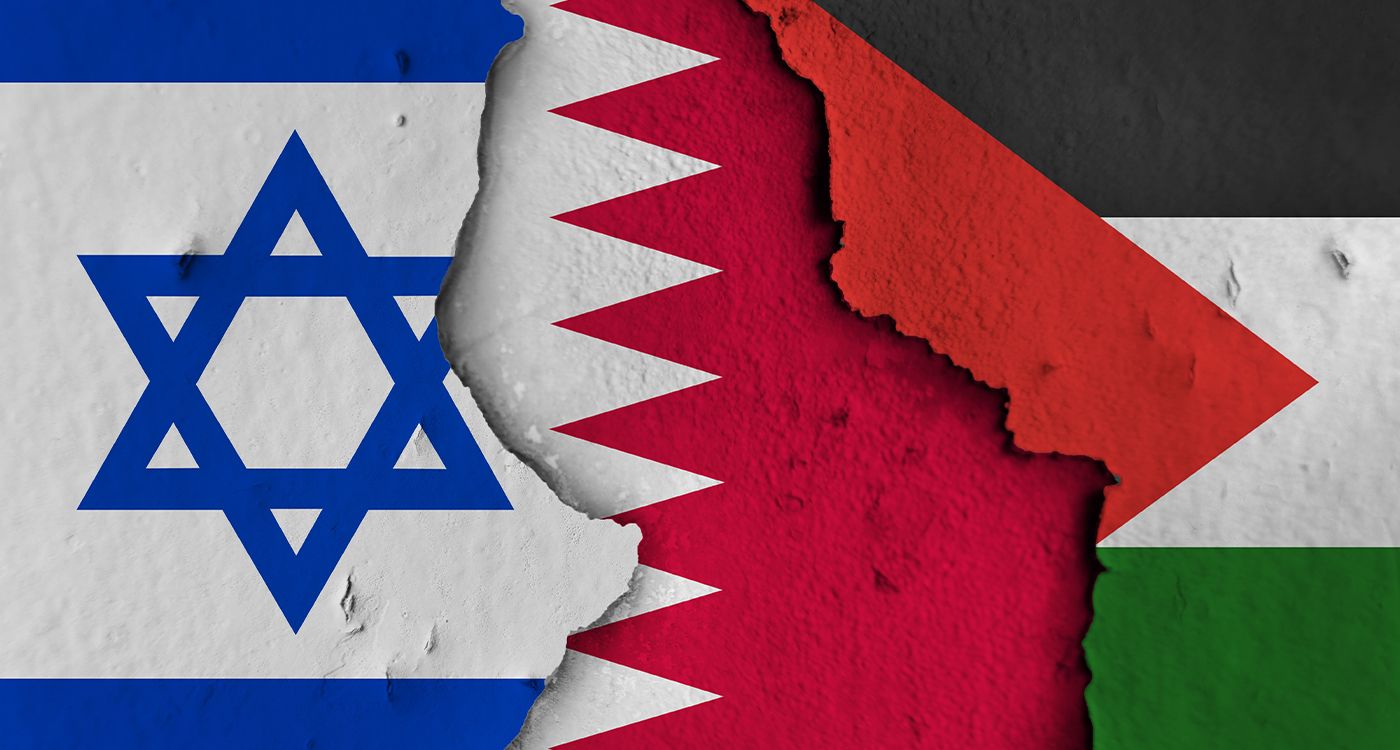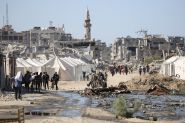- Home
- Middle East
- Gaza: Between Truce Hopes and Deadly Escalation, Doha Leads Talks

©shutterstock
As indirect talks between Israel and Hamas unfold in Doha, violence escalates in the Gaza Strip, with at least 31 killed in 24 hours. Facilitated by Qatar and backed by the United States and Egypt, these negotiations falter in securing a lasting truce, deepening the Palestinian enclave's plight.
As the Israel-Hamas conflict enters its 16th month, the indirect negotiations in Doha bring both hope and skepticism. At the center of the talks are the release of Israeli hostages, a critical condition for any potential truce, and the uncertain future of the Gaza Strip after the war.
Against this deadly backdrop, the discussions remain tense, particularly over Gaza's future governance. Israel is steadfast in opposing Hamas’ continued control of the enclave, a key hurdle to achieving a lasting ceasefire.
Blinken Optimistic Despite Persistent Obstacles
US Secretary of State Antony Blinken expressed “confidence” on Monday that an agreement could be reached, though he conceded that “the finish line” may not be reached “within the next two weeks,” according to Israeli media.
However, Ori Goldberg, a political analyst based in Tel Aviv, remains pessimistic: “To my knowledge, Hamas is interested in an agreement, but not excessively, as its recruitment rates rise with Israel’s ongoing genocide in Gaza,” he told al-Jazeera.
He added, “While the Israeli public is certainly in favor of an agreement, the Israeli government? Not really – the war aligns with its interests.”
Post-War Governance in Gaza
In December, Hamas and Fatah, the party of Palestinian Authority President Mahmoud Abbas, reached an agreement last December to form a committee tasked with governing the Gaza Strip after the war.
Following talks in Cairo under the mediation of Egyptian authorities, the two Palestinian groups approved a draft agreement, which is set to be confirmed by a presidential decree from Abbas, according to members of the negotiating teams from both Hamas and Fatah.
However, the plan has been strongly criticized by Israel, which categorically rejects any involvement of Hamas in Gaza’s governance. Israeli Defense Minister Israel Katz indicated on Tuesday his position for “total security control” over the Gaza Strip once the war ends.
“After dismantling Hamas' military and governmental force in Gaza, Israel will assume full security control with complete freedom of action,” Katz wrote on X, clarifying that this is “his” personal stance.
The Israeli defense minister further argued that Gaza's governance should mirror that of “Judea and Samaria,” the term Israel uses for the West Bank, a Palestinian territory under Israeli occupation since 1967.
The question of Gaza’s future governance remains a key point of contention. Katz’s predecessor, Yoav Gallant, had opposed any prolonged Israeli control in the Gaza Strip after the war. “I will not accept the establishment of an Israeli military administration in Gaza. Israel should not have civilian control over Gaza,” Gallant stated in May, urging Prime Minister Benjamin Netanyahu to make clear commitments in this regard.
In Ramallah, the Cairo proposal was rejected by Jibril Rajoub, Secretary-General of Fatah, who saw it as a “divisive” move for the Palestinian people. “We want one government, one security apparatus, and one policy. Any effort outside this framework is a mistake,” he declared.
The draft agreement stipulates that the committee, consisting of 10 to 15 individuals not aligned with either faction, would oversee all matters related to humanitarian aid, education, health, the economy and reconstruction, in coordination with the Palestinian Authority in Ramallah.
Additionally, the committee would manage the Rafah crossing between the Gaza Strip and Egypt, the only border crossing not controlled by Israel.
The future governance of Gaza remains a key point of contention, with Israeli positions even differing within the government. The international community continues to closely monitor these developments, hoping for a sustainable political resolution to this war-torn territory.
Negotiation Stakes
The ongoing negotiations are taking place just days before the investiture on January 20 of President-elect Donald Trump, who has already applied pressure on Hamas. Key points of contention include whether the ceasefire will be permanent or temporary, as well as the future governance of Gaza.
While the international community calls for de-escalation, the prospects for a lasting resolution remain uncertain, despite the continued efforts in Doha.
Read more




Comments